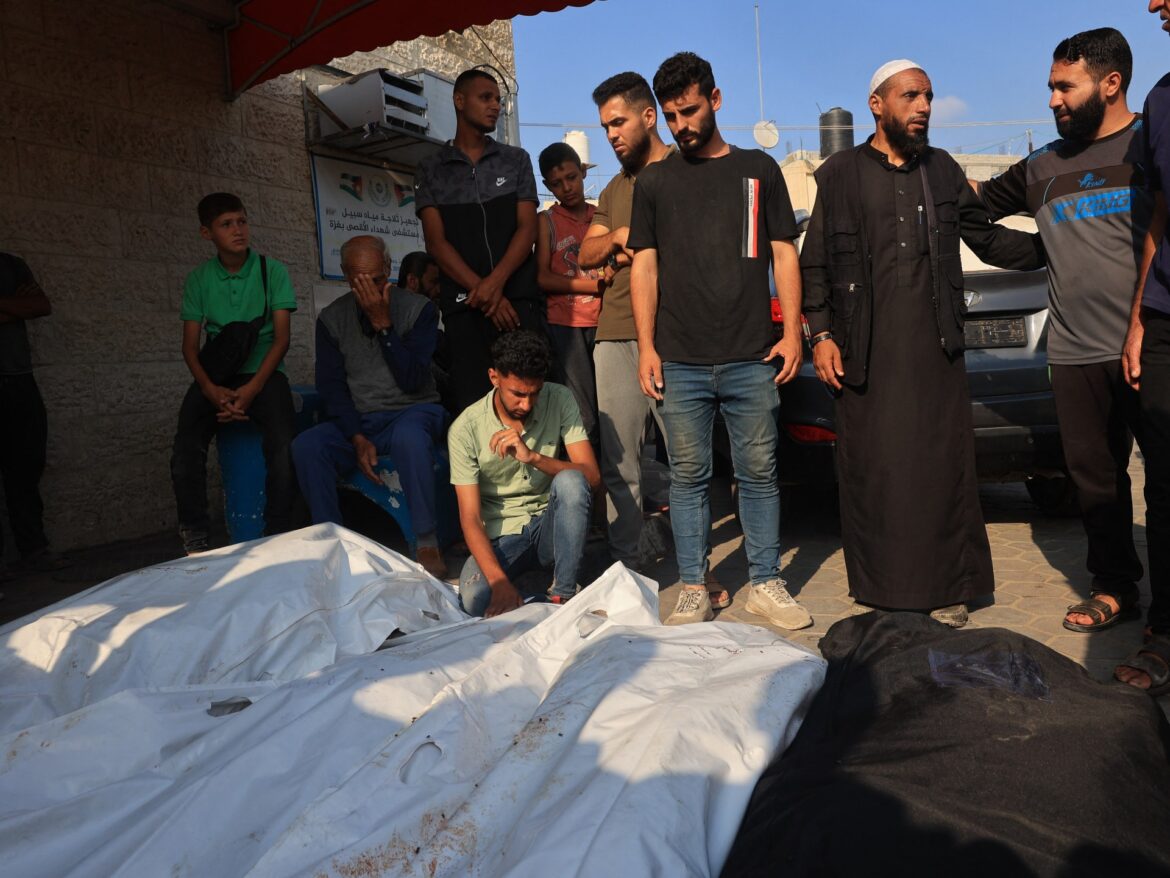At least 27 Palestinians have been killed in Israeli strikes in Gaza, marking another dark day as the war in the besieged territory enters its 10th month.
One of the attacks since dawn on Sunday targeted a school housing displaced people west of Gaza City, killing at least four Palestinians.
In central Gaza, the Israeli army struck a residential building in the al-Zawayda neighborhood, killing six people. According to the Palestinian Red Crescent Society, the victims included two children.
The killings come a day after an attack on a United Nations-run school for displaced Palestinians killed at least 16 people and injured dozens.
Rescuers said six more Palestinians were killed in a strike on another house in Gaza City. Israeli warplanes also targeted a group of civilians on the city’s 8th Street in the Sabra neighborhood, killing at least two people, according to the Wafa news agency.
The Israeli army said it attacked a building in the Khan Younis municipality in southern Gaza overnight, claiming it was being used by Hamas for “military activities.”
There was no immediate word on the number of casualties in the Khan Younis attack. Hamas denies allegations that its fighters are seeking refuge in civilian areas, including schools and hospitals.
Meanwhile, the total death toll from Israeli attacks on Gaza since October 7 has reached 38,153, the territory’s health ministry announced on Sunday.
The war has uprooted 90 percent of Gaza’s population, left nearly 500,000 people suffering “catastrophic” hunger and closed most hospitals, according to United Nations agencies.
The growing number of casualties has overwhelmed Gaza’s largest remaining health facility, Al-Aqsa Hospital, which is already filled with wounded from relentless Israeli strikes.
“The situation is very difficult,” said Dr. Muhammad Salha, acting director of Al-Awda Hospital in Jabalia.
New diplomatic efforts
The series of deadly strikes comes as new diplomatic efforts are being made by mediators from the United States, Qatar and Egypt to end nine months of violence.
Egyptian TV channel Al Qahera reported that Cairo was “hosting Israeli and American delegations to discuss outstanding issues” with a view to a ceasefire agreement and the release of the hostages, citing an unnamed senior official source.
Mediators were in contact with Hamas in “intensive Egyptian meetings this week with all parties to advance efforts” toward a truce, the newspaper said Saturday evening, without giving further details.
Israel also said it would send a delegation in the coming days for negotiations with Qatari mediators, even as Israeli Prime Minister Benjamin Netanyahu’s spokesman said Friday that “gaps” remained with Hamas in ceasefire negotiations.
In May, U.S. President Joe Biden announced a plan for an initial six-week truce and the exchange of hostages for Palestinian prisoners. Negotiations subsequently stalled, but a U.S. official said Thursday that a new proposal from Hamas “advances the process and could serve as a basis for the conclusion of the agreement.”
Senior Hamas official Osama Hamdan told AFP news agency that the group’s new ideas had been “conveyed by the mediators to the American side, which welcomed them and conveyed them to the Israeli side,” adding that “now the ball is in the Israeli court.”
Israel and the Lebanese group Hezbollah have also exchanged cross-border fire almost daily since last October, with attacks and rhetoric escalating over the past month, sparking fears of a full-scale war.
Early Sunday, air raid sirens sounded again in northern Israel and the army reported that 20 rockets had been fired, some of them intercepted by air defense systems.
Meanwhile, protesters returned to the streets across Israel on Sunday to pressure the Netanyahu government to reach a deal to bring back hostages still held in Gaza.
Protesters blocked rush-hour traffic at major intersections across the country, demonstrated outside politicians’ homes and briefly set tires on fire on the main Tel Aviv-Jerusalem highway before police cleared the way.



